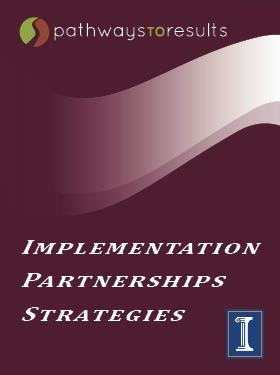Oakton Community College (Oakton) has a robust pathway for students who transition directly from high school into their manufacturing program of study. However, over 80% of the students in the program are nontraditional-aged students who transition into the program after taking non-credit coursework. Earlier this year, Oakton’s Pathways to Results (PTR) team identified a lower persistence rate for non-traditional aged students when compared to the traditional-aged students, and set out to strengthen the pathway for these students. Armed with student record data and student focus group data, Oakton’s PTR team set out to create a seamless transition into credit-bearing coursework for nontraditional-aged students, within the manufacturing program of study.
Oakton used three interconnected strategies aimed at supporting positive outcomes for these students. First, they piloted a work-to-learn program with integrated coursework and work-based learning. Second, they built opportunities for students to earn credit for prior learning for their non-credit coursework. Third, they integrated information about non-credit students into their student success report, providing teams with the information necessary to continue to improve outcomes for their students.
Oakton was one of five colleges who were part of PTR’s first cohort of second-year implementation and evaluation grants. These teams are expanding on the work completed in the first year of the PTR project. Oakton's PTR team is setting the stage for scaling change at their institution. Oakton’s PTR team went beyond implementation of these strategies in their manufacturing program. Oakton's PTR team is a change agent, focused on creating the opportunity to scale these interventions to other programs of study. The work being done at Oakton may inspire you in ways that support nontraditional-aged students at your institution. Read Heather McCambly’s, A Multipronged Approach to Improving Transitions and Outcomes for Nontraditional-Aged Students in Select Pathways at Oakton Community College to learn more.
